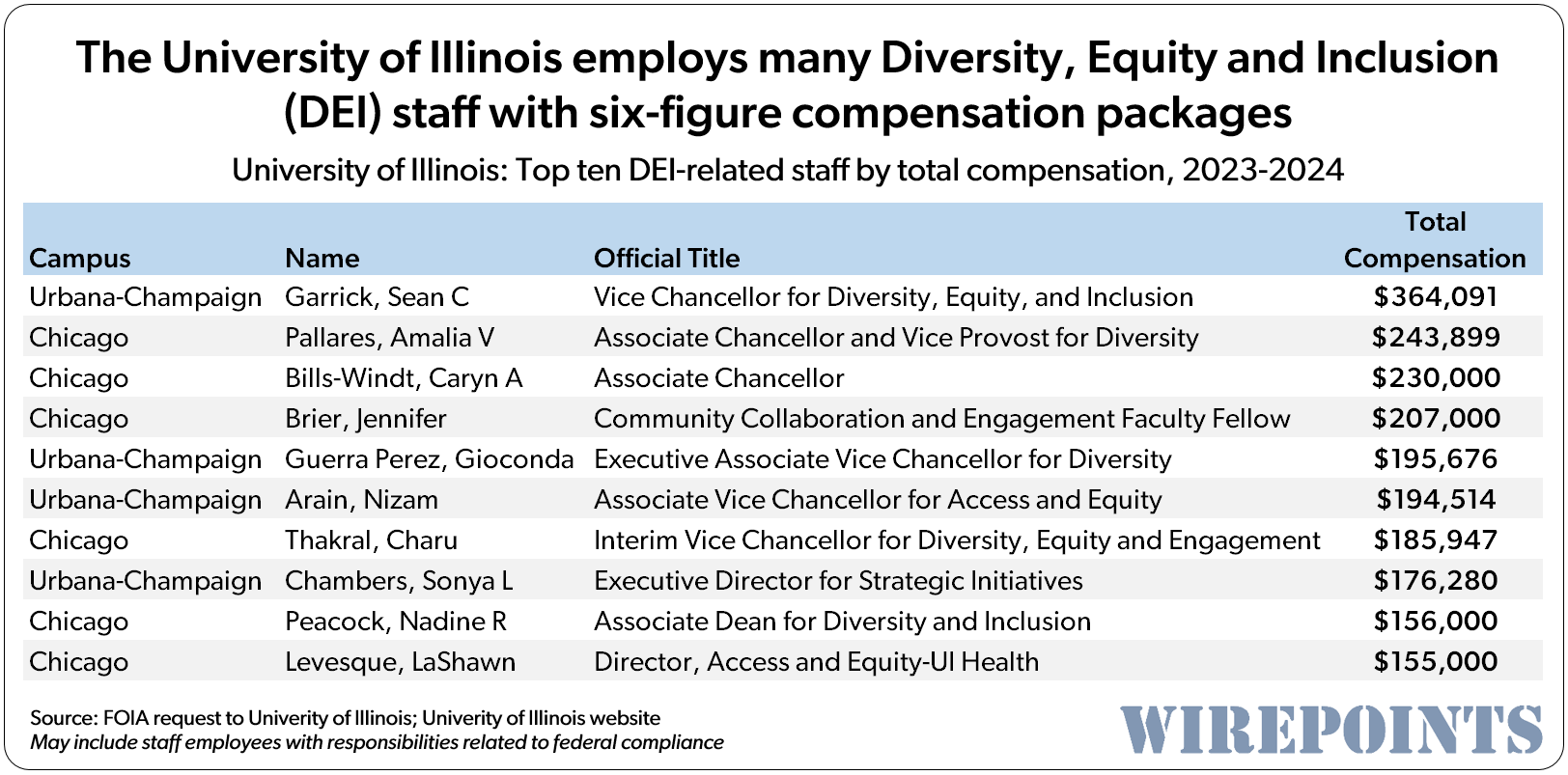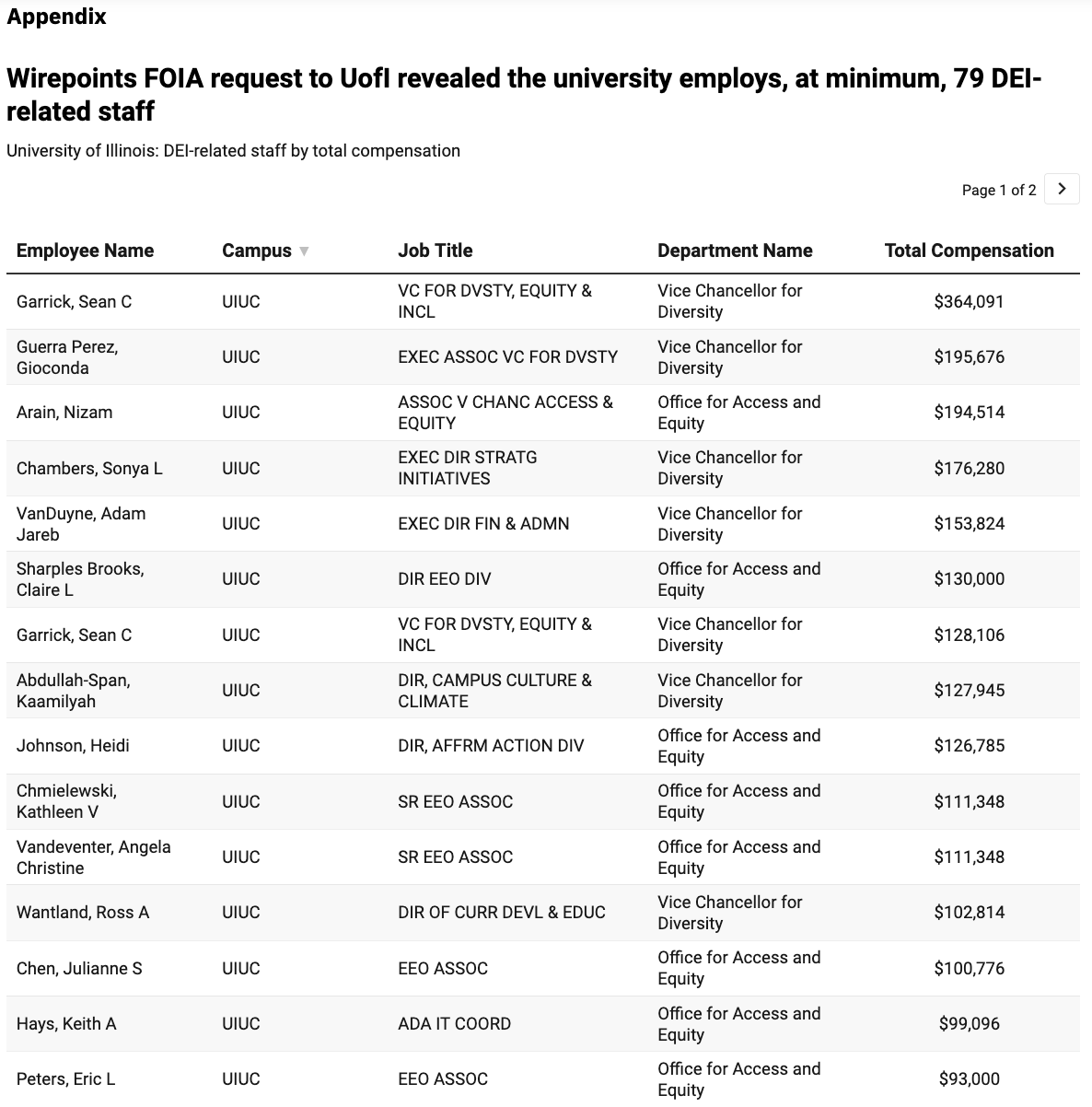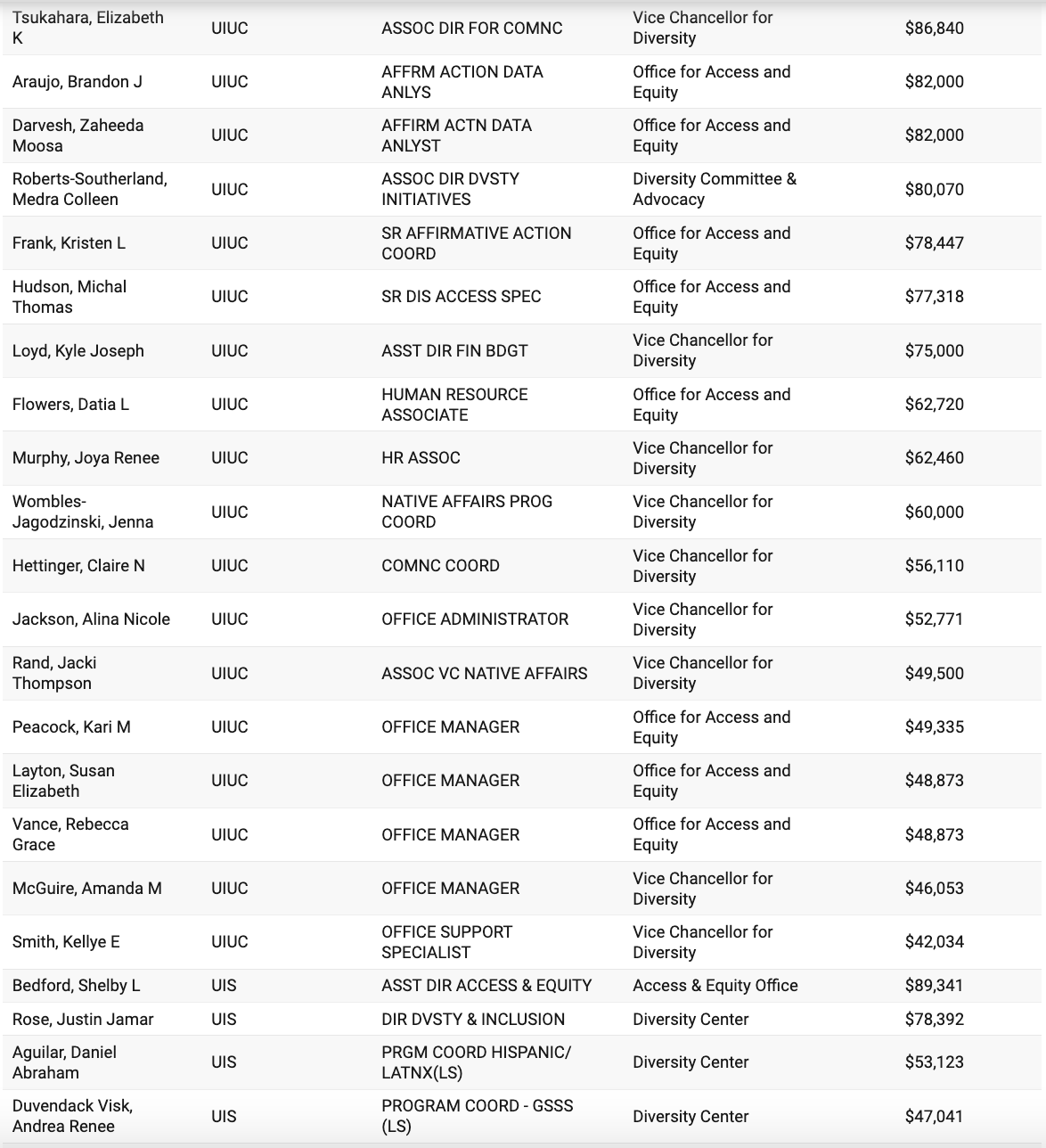Hallene Gatewayat the University of Illinois Urbana Champaign. | Wikimedia Commons / Pwojdacz
Hallene Gatewayat the University of Illinois Urbana Champaign. | Wikimedia Commons / Pwojdacz
Diversity, Equity and Inclusion (DEI) practices at universities across the country are coming under increased scrutiny for their failures. So much so that since 2021, twenty-one states have either banned or proposed banning DEI programs on college campuses.
And with good reason.
The growing backlash began with the Supreme Court ending affirmative action in higher education in June 2023. Then came the accusations of anti-semitism at Harvard and other Ivy League schools. The hypocrisy of DEI practices, both in theory and application, is finally getting a full showing.
So much so that at Wirepoints we have warned Illinois universities, especially U of I, to get ahead of the surging anti-woke backlash. To eliminate or pare down their DEI programs – and the requirement of “loyalty oaths” from professors – before they face wrath of unhappy donors and Americans fed up with “woke” excess.
Unfortunately, there seems to be no evidence of a pullback. The university is still employing dozens of DEI administrators with salaries in the six-figure range.
Leading the pack is Sean Garrick, Vice Chancellor for Diversity, Equity, and Inclusion, at the Urbana-Champaign campus. His salary of $364,091 is not only the highest among DEI employees in the U of I system, but the highest among all DEI employees across all state universities.
UIUC also has an Associate Vice Chancellor for Access and Equity and an Executive Associate Vice Chancellor for Diversity.
Meanwhile, the University of Illinois at Chicago has a Vice Chancellor for Diversity, Equity & Engagement who makes $237,000 and also has an Executive Associate Vice Chancellor for Diversity. All told, there are over a dozen director-level DEI staff under the U of I umbrella.

And the cost goes beyond just admin. A Wirepoints review of university personnel found that DEI is far more pervasive than we initially believed. From the College of Business to the School of Integrated Biology to the College of Engineering, DEI is everywhere.
Uncovering DEI
Wirepoints attempted to determine how pervasive DEI is at U of I through a Freedom of Information Act request. We requested staffing, organizational charts, job openings, and vendor payments related to DEI.
The university rejected all our requests as “unduly burdensome” except for staffing data.
On staffing, we requested “all current employees or faculty in positions related to, involving, and/or have any responsibilities associated with DEI departments, programs or initiatives under the University of Illinois System.”
According to the FOIA response, U of I employs a total of 79 “DEI” employees with compensation totaling $7.6 million (see Appendix). That likely includes employees with responsibilities related to federal compliance, such as Equal Employment, Title IX and the American Disabilities Act. Those roles were not specifically identified by the university in their response.
But those 79 officially-identified employees were just the tip of the iceberg.
Wirepoints dug into the university’s many webpages and found that DEI staffing is far more pervasive than the university said. Here are a few examples:
- On the university website, Eugene Moore is listed as an Assistant Dean for DEI, and Accessibility. Tepora Sua is the Assistant Director of DEI in the Chemical Sciences. Neither one was included in the employee list provided by the university.
- The Gies College of Business lists an Associate Dean of Equity.
- The Grainger College of Engineering has their own embedded institute and provides instructions on how faculty candidates can write a DEI statement and
- The Department of Psychology has an Ecologies of Liberation Lab that researches intersectionality.
- The Athletics Department includes Dr. Breanna Shamaila, Senior Associate Director of Athletics, Sport Administration, Inclusion and Student-Athlete Development.
- Illinois International features an eleven person DEI committee.
- There is an initiative in the College of Education that focuses on equitable outcomes, not opportunities.
- Even the School of Integrated Biology – which researches “plants and animals and their associated microbes” – professes their commitment “to the engagement, equity, inclusion and leadership that dismantles systems that utilize power, privilege and violence to disenfranchise, diminish and destroy.”
DEI goes far beyond personnel and titles. It’s also integrated into the university’s operations.
At the University of Illinois Urbana-Champaign for example, where “Diversity, equity, and inclusion are core to the mission,” it takes the form of a plan with the Orwellian name Communication 9. Compliance is currently “optional” but will become mandatory in 2025.
Under Communication 9, DEI is embedded in performance evaluations for professors. Promotion and tenure decisions are to be based in part on the adequacy of the DEI work performed. “Show your work” is taken literally as staff must draft a strong statement about not only their current DEI efforts, but “clear and detailed plans for future DEI efforts” as well.
Staff are also warned to be “sensitive about the use of language that perpetuate prejudices and words that apply external value judgments that minimize the experiences, strengths, and contributions of individuals and/or groups historically marginalized and/or underrepresented in academia.”
Pare down…or else
Scrutiny is already headed Illinois’ way. The Southern Illinois University medical school was recently hit by a discrimination complaint by Cornell Law School professor William Jacobson for issuing scholarships based on race or gender-based identity.
More complaints and lawsuits could emerge if U of I and the rest of Illinois’ public universities don’t start paring down their efforts in DEI.
Not doing so might end up being a damaging, and costly, mistake.









 Alerts Sign-up
Alerts Sign-up